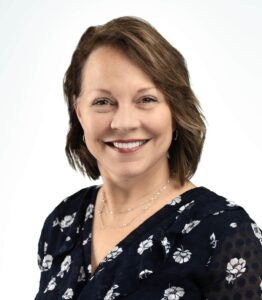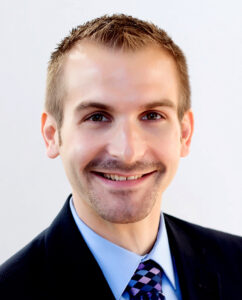Writer: Joshua Andino
4 min read July 2021— With its robust, diversified economy and a host of economic development arms attuned to the needs of businesses across the state, Minneapolis-St. Paul is positioned for a stronger and more equitable future. Invest: spoke with both the Minneapolis Regional Chamber of Commerce and Saint Paul Area Chamber of Commerce to understand their contributions towards the region’s economic recovery efforts.
How is your chamber working to aid in the economic recovery of the region?
 B Kyle, President & CEO, Saint Paul Area Chamber of Commerce:
B Kyle, President & CEO, Saint Paul Area Chamber of Commerce:
Beyond relationship building, the chamber is heavily invested in advocacy on pro-business and pro-investment issues and in our economic development work to spur new development and new investors in this market. The Saint Paul Area Chamber has significant goals in terms of increased density and growth. Though the capital city, we are smaller than our Twin City of Minneapolis, and are fierce in our pursuit of new opportunity. We also capitalize on our nimbleness, our access to resources, our strong and connected thinking within the city and all its partners.
In terms of specific programs, the City of Saint Paul and Ramsey County have been working collaboratively on small business grants, programs to provide wraparound services to small/micro businesses, and providing resources to BIPOC-owned entrepreneurs to help stimulate an under-capitalized sector of business. The chamber partners on those programs in service to businesses. That work will continue and expand with the new ARP (American Rescue Plan) funds that soon will be available.
 Jonathan Weinhagen, President & CEO, Minneapolis Regional Chamber:
Jonathan Weinhagen, President & CEO, Minneapolis Regional Chamber:
The Minneapolis marketplace has an incredible foundation to build upon when responding to a global incident like the pandemic. We didn’t have to build the muscle to respond to that, the muscle was already built. Many of our counterparts across the country had to start building relationships with their business owners or other groups. We already had those and were meeting periodically. This ecosystem is just part of who we are and what we do and that has served us well in this regional economy.
This is one of the highest tax states in the country but we are also a regional economy with both a lot of ancillary benefits, a high quality of life, a highly educated workforce and proximity to so many different assets. That has been an important counterbalance as we have managed our economic growth as a regional economy. We have to focus on taxes and regulations, ensuring that we continue to have a place that is a great place to live, work and do business. And we have to do all the things in between.
What steps are being taken to create a more equitable community?
Kyle: The WeLovetheMidway/WeLoveStPaul fund reflects a partnership between the St. Paul Area Chamber, the Midway Chamber of Commerce, and the St. Paul Downtown Alliance, in response to civil unrest in the aftermath of George Floyd’s murder in May of 2020. That unrest resulted in $600 million worth of damage in the city, even more in Minneapolis, and we wanted to help. Paired with this region’s strong philanthropic bent, and the many large companies here, the fund raised over $1.36 million, representing more than 950 companies and individuals. Over 75% of those donations were $250 or less, and they reached more than 80 businesses, over 65% of which are BIPOC (Black, Indigenous and People of Color) owned.
Weinhagen: The bigger factor that is looming in our marketplace is racial equity, particularly after the murder of George Floyd. That wasn’t the first time we realized that we had really significant issues in our marketplace. In fact, my organization for 40 years has been dealing with the achievement gap. We have one of the greatest academic disparities between white children and children of color in the country. That has been a long-term metric that we have been working to rectify. We also have one of the worst economic disparities: in the last decade, we were only able to close the income gap between white families and families of color by just $60 a year. These are data that have haunted us for generations. So what is the private sector’s role in that? That’s the work that so many of our companies have been doing because there’s an expectation that our corporate community will look at the events of the day and be reflective of what our values are.
What is your outlook for the future of the area’s economy?
Kyle: Saint Paul’s star is rising. We are getting attention. That said, in the short term, we do anticipate economic recovery across the region to be slower than has been seen historically, particularly in the sectors hardest hit by the pandemic. We also have real challenges in our disparity gaps relative to employment, promotion, quality of life, quality of education. In a region that prides itself on our high quality of life, our challenge is to ensure that experience applies to the entire community. The opportunity is in the realization of that goal. In terms of capitalizing on the strength of our higher ed community, the opportunity is to be thoughtful about skill set-focused programing and engaging younger students.
Weinhagen: This year could parallel the Roaring Twenties. COVID-19 is compared to the 1918 Spanish Flu, which set forth a decade of merriment, togetherness and energy. I think that’s going to be our reality. That’s where we’re headed since people are coming back to work in the office and going to ballgames. We anticipate having a football season that opens up with 65,000 people at U.S. Bank Stadium.
Then there’s the future of work, which I think will be flexible. I do think there’s a future for downtowns where we have that juxtaposition of entertainment, sports and nightlife. I also think that quality of life is going to win the day. There is no region in this country that has a better quality of life.
For more information, visit:
